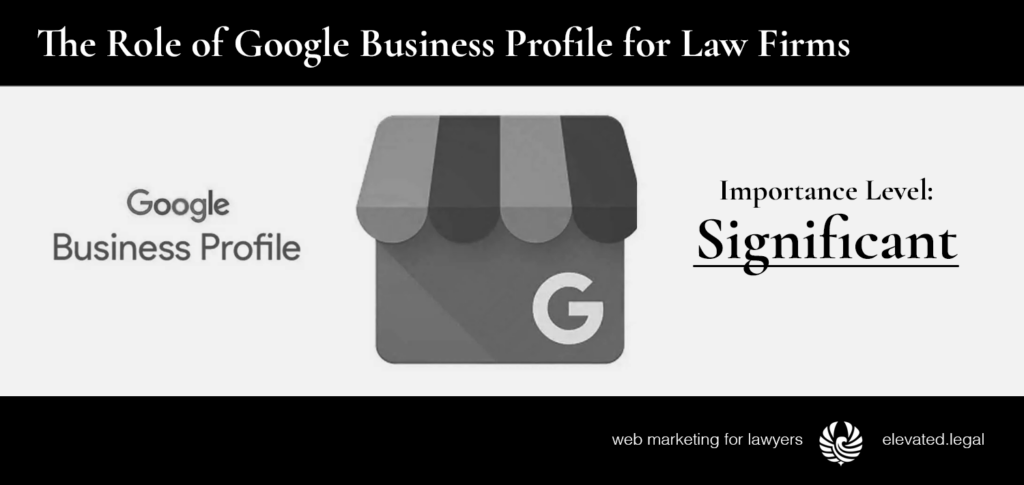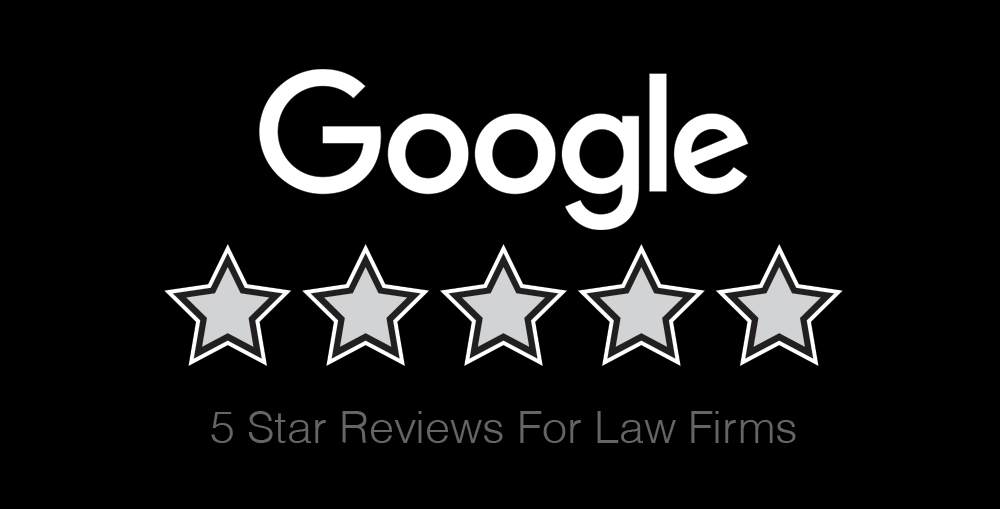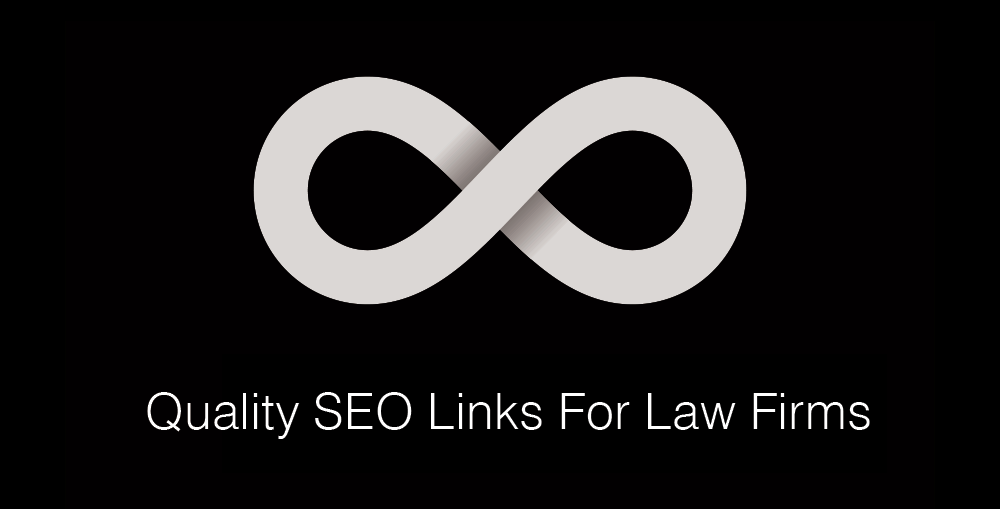Adapting to Win: Navigating Google’s Evolving Search Landscape for Law Firms
Over the last 20 years, I’ve watched Google’s search landscape evolve. It’s gone from basic to incredibly complex, guided by AI and sophisticated algorithms. At Elevated Legal Marketing, adapting our strategies to these changes has been key to making sure our clients stand out. This experience has taught us the importance of not just reacting to changes but being ahead of them.
In this guide, we’ll look at the current ranking factors for Google, specifically for law firms. Using our deep understanding of these changes, we aim to provide insights that will help your law firm succeed online in today’s competitive market. Let’s get into what it takes to make your firm more visible and attractive to potential clients online.
Understanding Google Ranking Factors for Law Firms
Today, law firms face heavy competition online. To compete, it’s crucial to know what affects your firm’s ranking on search engines like Google. This guide will dive into Google’s ranking factors for law firms, showing you how to boost your search results to bring in more clients.
First, you need to understand the various factors that influence ranking Google Search Essentials, once known as Webmaster Guidelines, is a great starting point. The guidelines are broad and not all elements apply to law firms, but it breaks down the do’s and don’ts, plus the technical details on how to rank well on Google.
The Role of SEO in Law Firms
When it comes to getting new clients, referrals are always preferred, but the biggest growth opportunity for law firms is nearly always with Google, where a massive amounts of people turn to find a lawyer. That’s why search engine optimization (SEO) is so important for law firms. High rankings on Google for high value keywords means more potential clients discovering your firm and ultimately, more leads, more clients and more revenue.
Local SEO Rankings for Lawyers in 2025
Google is always adjusting and testing the arrangement of page elements for lawyers, but one constant is that the search results are all local, regardless of whether a local keyword is used. Including local content, obtaining local backlinks, and receiving local reviews are significant indicators to Google.
Every SEO tactic listed on this page has a local element to it.

Role of Google Business Profile for Law Firms
One of the key components of local SEO is optimizing your law firm’s Google Business Profile. When potential clients search for local legal services, Google displays relevant local businesses on a map, along with their contact information, reviews, and other details. By optimizing your Google Business Profile, you can improve your law firm’s visibility in local search results, attract more website visitors, and increase your chances of converting them into clients.
Quick Local SEO Tip: Google is always adding more service options, be sure to keep your profile updated. Review the services selected in your Google Business Profile and compare them against your competitors.

Reviews and Their Impact on Local Search Rankings
Reviews play a crucial role in determining the search rankings of law firms on Google. They serve as a quality signal to the search engine that the firm can be trusted. Reviews can greatly affect rankings in Google Maps, where potential clients are looking for legal services in their area. Moreover, reviews also have a significant impact on conversions as many people rely on them when making decisions about which lawyer to hire. That’s why it’s important for law firms to encourage their clients to leave reviews and to respond to any feedback (positive or negative) promptly and professionally.
Significance of Consistent NAP+W
Consistency in your law firm’s Name, Address, Phone number, and Website (NAP+W) details across various online platforms is important for local SEO. Search engines like Google rely on these details to determine your law firm’s legitimacy and credibility. Inconsistent or outdated NAP+W information can confuse search engines, leading to lower visibility in local search results. Ensuring accurate and consistent information across platforms can positively impact your law firm’s local search rankings, making it easier for potential clients to find and contact you.
Online citations are mentions of your law firm’s NAP+W details on external websites, directories, and social media platforms. These online citations play a vital role in building your law firm’s online presence and can significantly impact your local search rankings.

Quality Legal Content and its Influence on Rankings
Content quality is near the top of the list of important Google Ranking Factors For Law Firms. Google and other search engines prioritize relevant, informative, and well-written content that provides value to users.
Introduction to E-E-A-T for Law Firms: Why It Matters in 2025
In 2025, there will continue to be a significant increase in AI-generated content, making it crucial for law firms to establish trust and authority on the internet. Google’s E-E-A-T criteria (Experience, Expertise, Authoritativeness, Trustworthiness) remains a key factor in determining a website’s ranking in search results. For law firms, showcasing expertise and authoritativeness is crucial, but it is the element of trustworthiness that truly sets successful firms apart from the competition.
What does E-E-A-T Stand For?
E – Experience
Your team’s knowledge and skill in the legal field. Demonstrating your ability to manage legal issues effectively.
E – Expertise
Your team’s ability to manage legal issues effectively. Demonstrating your ability to manage legal issues effectively.
A – Authoritativeness Your law firm’s reputation and ability to provide accurate and reliable legal information.
T – Trustworthiness: Building trust with potential clients by providing them with high-quality content that is relevant and informative.
The Need for Legal Keyword Research
Law firm SEO is heavily reliant on keyword research, which allows for the identification and integration of relevant keywords into website content. This, in turn, improves search rankings and increases the likelihood of attracting potential clients seeking legal services online. The importance of keyword research lies in the fact that it can help to understand the online search behavior of potential clients, while targeting keywords related to the firm’s practice areas can improve website visibility and increase traffic. Additionally, keyword research can assist in crafting tailored content that resonates with the target audience, and including relevant keywords in website content can boost visibility and rankings. Finally, continuously monitoring and optimizing target keywords can help to attract new clients and provide a competitive edge.
The Role of Fresh and High-Quality Content
Regularly publishing fresh and high-quality content is critical for law firm SEO. Search engines value websites that consistently update their content, as it signals relevance and engagement. Here are some key points to understand the role of fresh and high-quality content:
- Regularly publishing new content enhances your law firm’s website rankings, as search engines prioritize fresh content.
- High-quality content creation is essential for establishing your law firm’s online visibility and credibility.
- Fresh content contributes to one of the most important ranking factors for law firms, attracting search engine attention.
- By creating relevant, informative, and engaging content, you can position your law firm as a trusted resource, attracting potential clients.
- A well-executed content marketing strategy can help you establish your law firm’s online presence and attract new clients.

Building Link Authority For Law Firms
Link building is a crucial aspect of law firm SEO, as it helps establish your website’s link authority, which in turn improves your website rankings. Link authority refers to the quality and quantity of backlinks leading to your website. By acquiring backlinks from reputable sources, you can signal to search engines that your website is trustworthy, reliable, and relevant. Anchor text, which is the clickable text in a hyperlink, is an important factor in link building. Optimizing your anchor text with relevant keywords can further enhance your website’s link authority and the quality of your content.
Law Firm Directories
Law firm directories are online platforms that list law firms, providing potential clients with relevant information such as practice areas, contact details, and reviews. Listing your law firm in reputable directories can have several advantages, including improved link authority.
Local Sponsorships
By actively supporting local events, organizations, and charitable causes, your law firm can establish connections within the community, gain exposure, and get great local links.
Featured in Quality Legal Publications
Being featured in reputable legal publications relevant to your legal practice can have a significant impact on your law firm’s visibility and credibility.
Op-Ed in Publications Related to Legal Practice
Writing op-eds (opinion editorials) in publications related to your legal practice can position your law firm as a thought leader and expert in your field.
Local Chamber of Commerce Websites
Listing your law firm on local chamber of commerce websites can enhance your online visibility and sends a strong local signal to Google and helps elevate your law firm’s local search rankings.
Technical Aspects of SEO for Law Firms
In addition to content optimization and link building, technical aspects of SEO are crucial for law firms to improve their website’s performance and search engine rankings. Technical SEO focuses on website elements that impact performance, site crawlability, and user experience. By addressing technical factors, law firms can ensure their website is well-optimized for search engines and user engagement.
On-Page SEO Factors
On-page SEO factors are elements on your web pages that can be optimized to improve search engine visibility. Here are some important on-page SEO factors to consider:
- Optimizing title tags, meta descriptions, and header tags with relevant keywords improves your law firm’s search engine rankings.
- Providing unique, informative, and relevant content on each page enhances your website’s visibility and user experience.
- Creating keyword-rich URL slugs helps search engines understand the context of your page’s content.
- Incorporating internal links within your website’s content improves website navigation and user engagement.
- Utilizing schema markup, such as structured data, helps search engines better understand your law firm’s content, resulting in improved visibility.
Off-Page SEO Factors
Off-page SEO factors focus on activities that occur outside of your website but still impact your law firm’s search engine rankings. Here are some important off-page SEO factors to consider:
- Building quality backlinks from authoritative websites improves your law firm’s link authority, search visibility, and organic rankings.
- Engaging in social media platforms can help your law firm connect with potential clients, increase website visibility, and generate organic traffic.
- Encouraging social media sharing of your website content increases its visibility and provides potential clients with valuable information.
- Establishing your law firm’s online presence through social media platforms strengthens your brand image and visibility within your target audience.
- Leveraging social media platforms for online reputation management can help your law firm maintain a positive image and attract new clients.
The Importance of User Experience in Google’s Ranking System
In Google’s ranking system, user experience plays a vital role in determining the visibility of your law firm’s website in search results. Google aims to provide users with the most relevant and user-friendly websites, so optimizing your website for a positive user experience is crucial.
Providing relevant content on your law firm’s website ensures user engagement, as visitors are more likely to stay and explore further if they find helpful information. Mobile-friendly website design is also important, as an increasing number of users access the internet via mobile devices. Optimizing your website’s performance on mobile devices is important not only for user experience but also for rankings in mobile search results.
Another factor that influences user experience is website load time. Slow-loading websites can lead to high bounce rates, where visitors leave the website without engaging with it further. Optimizing your website’s load time can improve user experience and ultimately lead to higher rankings in search results.
Tools for Monitoring the Results of Your SEO Campaign
Tracking the effectiveness of your law firm’s SEO campaign is crucial to improving your website’s visibility. Luckily, there are several free tools available to analyze your website traffic and monitor your online performance.
Google Analytics
One of the most common tools used to track SEO campaigns is Google Analytics. This free tool provides detailed insights into your website traffic, including the number of visitors, where they are coming from, and how long they are staying on your site.
Google Search Console
Another free tool offered by Google is the Search Console. This tool allows you to track impressions, clicks, and keywords, as well as identify any technical issues that may be affecting your website’s search engine ranking.
Google Business Profile Performance Data
If your law firm has a Google Business Profile, you can also use the Performance Data tool to track profile interactions, calls, messages, and clicks. This information can help you optimize your profile and attract more potential clients.
By utilizing these free tools, you can gain valuable insights into your law firm’s SEO campaign and make informed decisions to improve your website’s visibility and online performance.
The Elevated Difference
Proven Expertise & Tailored Approach
Led by Adam Kline, our strategies are backed by a quarter-century of web marketing succesS. This depth of experience, specifically within the legal sector, ensures that we're not just guessing what works; we're applying proven methods to grow your practice.
SEO ConSultation with Adam Kline
FAQs About SEO For Law Firms
Q: Why is SEO for Law Firm Websites Important?
SEO, or search engine optimization, is crucial for law firm websites because it determines how easily potential clients can find your firm online. Without proper SEO practices, your website may not appear on the first page of search engine results, making it difficult for people to discover your services. By optimizing your website with relevant keywords, meta descriptions, and other SEO tactics, you can increase your visibility and improve your chances of attracting new clients. Additionally, having a strong online presence through SEO can establish credibility and trust with potential clients, ultimately leading to more business for your law firm.
Q: How does the content on a law firm’s website impact its Google ranking?
The content on a law firm’s website can play a crucial role in determining its Google ranking. The more relevant and informative the content, the higher the likelihood of the website appearing on the first page of search results. This is because Google values high-quality content that provides value to users. Law firms should focus on creating content that is not only informative but also unique and engaging. Additionally, incorporating relevant keywords and phrases throughout the content can improve the website’s visibility on search engines. In summary, the content on a law firm’s website has a significant impact on its Google ranking, making it essential for law firms to prioritize creating high-quality, relevant, and informative content.
Q: What Is On-Page SEO for Law Firms?
On-page SEO refers to the process of optimizing individual web pages in order to rank higher and earn more relevant traffic in search engines. For law firms, this includes optimizing the content on each web page according to relevant keywords and phrases, ensuring that the website is mobile-friendly, and implementing appropriate meta tags and descriptions. On-page SEO also includes optimizing the website’s loading speed and improving user experience. By incorporating these on-page SEO tactics, law firms can improve their search engine rankings and attract more potential clients to their website.
Bottom Line
It comes down to understanding and implementing Google ranking factors is crucial for law firms looking to improve their online visibility and attract more clients. By focusing on SEO, user experience, local SEO, content quality, and building link authority, law firms can enhance their website’s rankings and increase organic traffic. It is essential to conduct thorough keyword research, create fresh and high-quality content, and optimize on-page and off-page SEO factors. By prioritizing these strategies and staying up to date with Google’s regular changes, law firms can establish a strong online presence and gain a competitive edge in their industry.


